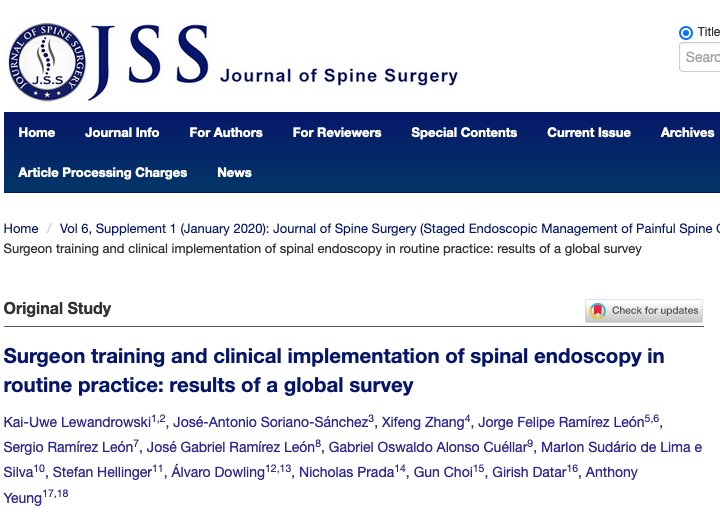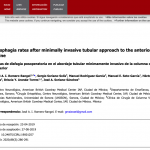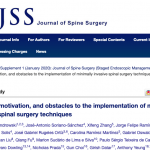Abstract
Background: Training of spine surgeons may impact the availability of contemporary minimally invasive spinal surgery (MIS) to patients and drive spine surgeons’ clinical decision-making when applying minimally invasive spinal surgery techniques (MISST) to the treatment of common degenerative conditions of the lumbar spine. Training requirements and implementation of privileges vary in different parts of the world. The purpose of this study was to analyze the training in relation to practice patterns of surgeons who perform lumbar endoscopic spinal surgery the world over.



